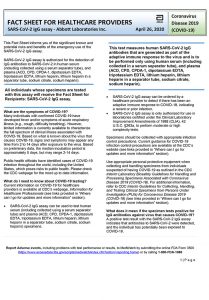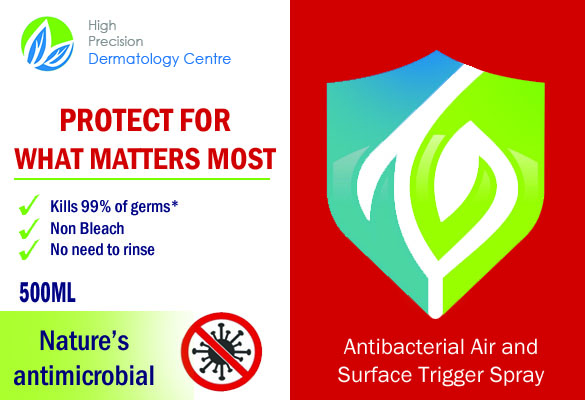Coronavirus (Covid-19)
How to get over the Coronavirus (Covid-19) using homeopathic medicine ?
I’ve been using this homeopathic medicine called Coronashield by the HP dermatology centre for the coronavirus for the last few weeks, and I can say that it works very well. The story starts when about 9 weeks ago I woke up in the middle of the night with strong pain all over my body, headache and high temperature. It wasn’t a muscle pain but felt more like my blood vessels about to explode.
I also felt like I can drink a bucket of water, I felt very dry. It was only then that I appreciated my wife buying this homeopathic medicine for the coronavirus and forcing all our children to take this Coronashield thingy. I of course being a man, refused to take an unknown branded homeopathic medicine. That night I took my first 10 drops and went back to bed. In the morning I woke up and felt more or less the same, so I took another 10 drops and went back to bed.
After three hours I woke up still with 90% of my body in pain but no headache and no high temperature. I must mention that I only took the homeopathic drops and nothing else, apart from drinking a lot a lot of water. After two hours I felt dizzy and went back to bed for another hour or so. I woke up in the afternoon and took the 10 drops again.
After 24hrs ish I felt like I am in control of only 30% of my body, but at least I wasn’t any more a guest in my own body. After 48hrs I was in 60% control, and after about 72hrs only my right leg was left with the coronavirus symptoms. It was the same feeling that we normally feel when our legs get numbed. Nothing helped to get rid of this pain, no massage, no exercise, nothing.
The only option was to carry on taking the homeopathic drops and try to ignore the pain. The following day I woke up a new man! I keep on taking this homeopathic medicine. And another good thing is that not my wife nor my children caught the coronavirus from me, thanks to the Coronashield drops which they started taking a week before my incident, taking it once a day was enough for them to stay protected. This is more or less my story, and believe me it wasn’t a pleasant experience and I don’t wish anyone going through the pain and suffering I went through, therefore I urge everyone I know, please please please take this coronashield to prevent you and your loved ones from getting coronavirus known also as COVID-19.
Check my blood test below confirming that my body had developed the Coronavirus (Covid-19) Anti bodies by the CoronaShield homeopathic medicine


This Fact Sheet informs you of the significant known and potential risks and benefits of the emergency use of the SARS-CoV-2 IgG assay. SARS-CoV-2 IgG assay is authorized for the detection of IgG antibodies to SARS-CoV-2 in human serum (including collected using a serum separator tube), and plasma (ACD, CPD, CPDA-1, dipotassium EDTA, tripotassium EDTA, lithium heparin, lithium heparin in a separator tube, sodium citrate, sodium heparin). What are the symptoms of COVID-19? Many individuals with confirmed COVID-19 have developed fever and/or symptoms of acute respiratory illness (e.g., cough, difficulty breathing). However, limited information is currently available to characterize the full spectrum of clinical illness associated with COVID-19. Based on what is known about the virus that causes COVID-19, signs and symptoms may appear any time from 2 to 14 days after exposure to the virus. Based on preliminary data, the median incubation period is approximately 5 days, but may range 2-14 days. Public health officials have identified cases of COVID-19 infection throughout the world, including the United States, which poses risks to public health. Please check the CDC webpage for the most up to date information. What do I need to know about COVID-19 testing? Current information on COVID-19 for healthcare providers is available at CDC’s webpage, Information for Healthcare Professionals (see links provided in “Where can I go for updates and more information” section). • SARS-CoV-2 IgG assay can be used to test human serum (including collected using a serum separator tube) and plasma (ACD, CPD, CPDA-1, dipotassium EDTA, tripotassium EDTA, lithium heparin, lithium heparin in a separator tube, sodium citrate, sodium heparin) specimens. • SARS-CoV-2 IgG assay can be ordered by a healthcare provider to detect if there has been an adaptive immune response to COVID-19, indicating a recent or prior infection. • SARS-CoV-2 IgG assay is only authorized for use in laboratories certified under the Clinical Laboratory Improvement Amendments of 1988 (CLIA), 42 U.S.C. §263a, to perform moderate or high complexity tests. Specimens should be collected with appropriate infection control precautions. Current guidance for COVID-19 infection control precautions are available at the CDC’s website (see links provided in “Where can I go for updates and more information” section). Use appropriate personal protective equipment when collecting and handling specimens from individuals suspected of having COVID-19 as outlined in the CDC Interim Laboratory Biosafety Guidelines for Handling and Processing Specimens Associated with Coronavirus Disease 2019 (COVID-19). For additional information, refer to CDC Interim Guidelines for Collecting, Handling, and Testing Clinical Specimens from Persons Under Investigation (PUIs) for Coronavirus Disease 2019 (COVID-19) (see links provided in “Where can I go for updates and more information” section). What does it mean if the specimen tests positive for IgG antibodies against virus that causes COVID-19? A positive test result with the SARS-CoV-2 IgG assay indicates that antibodies to SARS-CoV-2 were detected, and the individual has potentially been exposed to COVID-19. This test measures human SARS-CoV-2 IgG antibodies that are generated as part of the adaptive immune response to the virus and is to be performed only using human serum (including collected in a serum separator tube), and plasma (ACD, CPD, CPDA-1, dipotassium EDTA, tripotassium EDTA, lithium heparin, lithium heparin in a separator tube, sodium citrate, sodium heparin). IgG antibodies are generally detectable in blood several days after initial infection, although the duration of time antibodies are present post infection is not well
characterized. Individuals may have detectable virus
present for several weeks following seroconversion.
When IgG antibodies are present it often indicates a past
infection but does not exclude recently infected
individuals who are still contagious. It is unknown how
long IgG antibodies to SARS-CoV-2 will remain present
in the body after infection and if they confer immunity to
infection.
A positive result for IgG may not mean that an
individual’s current or past symptoms were due to
COVID-19 infection. Laboratory test results should
always be considered in the context of clinical
observations and epidemiological data in making a final
diagnosis and patient management decisions.
The SARS-CoV-2 IgG assay has been designed to
minimize the likelihood of false positive test results.
However, in the event of a false positive result, risks to
individuals could include the following: risk of infection by
exposure to persons with active COVID-19. If a recent
infection is suspected a false positive result may lead to
a recommendation for isolation of the individual,
monitoring of household or other close contacts for
symptoms, isolation that might limit contact with family or
friends and may increase contact with other potentially
COVID-19-infected individuals, limits in the ability to
work, or other unintended adverse effects.
All laboratories using this test must follow standard
confirmatory testing and reporting guidelines according
to their appropriate public health authorities.
What does it mean if the specimen tests negative for
IgG antibodies against virus that causes COVID-19?
A negative test result with this test means that
SARSCoV-
2 specific antibodies were not present in the
specimen above the limit of detection. However, a
negative result does not rule out COVID-19 and should
not be used as the sole basis for treatment, patient
management decisions, or to rule out active infection.
Individuals tested early after infection may not have
detectable IgG antibody despite active infection;
in addition, not all individuals will develop a detectable
IgG response to SARSCoV-
2 infection. The absolute
sensitivity of the SARS-CoV-2 IgG assay is unknown.
When testing is negative, the possibility of a false
negative result should be considered in the context of an
individual’s recent exposures and the presence of
clinical signs and symptoms consistent with COVID-19.
The possibility of a false negative result should
especially be considered if the individual’s recent
exposure or clinical presentation indicate that COVID- 19
is likely and diagnostic tests for other causes of illness
(e.g., other respiratory illness) are negative. Direct
testing for virus (e.g., PCR testing) should always be
performed in any individual suspected of COVID-19,
regardless of the SARS-CoV-2 IgG assay result.
Risks to an individual of a false negative result include:
restriction of activities deemed acceptable for individuals
with evidence of an IgG response to SARS-CoV-2, or
other unintended adverse events.
What is an EUA?
The United States FDA has made this test available
under an emergency access mechanism called an
Emergency Use Authorization (EUA). The EUA is
supported by the Secretary of Health and Human
Service’s (HHS’s) declaration that circumstances exist to
justify the emergency use of in vitro diagnostics (IVDs)
for the detection and/or diagnosis of the virus that
causes COVID-19.
An IVD made available under an EUA has not
undergone the same type of review as an FDA-approved
or cleared IVD. FDA may issue an EUA when certain
criteria are met, which includes that there are no
adequate, approved, available alternatives, and based
on the totality of scientific evidence available, it is
reasonable to believe that this IVD may be effective in
the detection of IgG antibodies to the virus that causes
COVID-19.
The EUA for this test is in effect for the duration of the
COVID-19 declaration justifying emergency use of IVDs,
Where can I go for updates and more information?
CDC webpages:
General: https://www.cdc.gov/COVID19
Healthcare Professionals:
https://www.cdc.gov/coronavirus/2019-nCoV/guidance-hcp.html
Information for Laboratories: https://www.cdc.gov/coronavirus/2019-
nCoV/guidance-laboratories.html
Laboratory Biosafety: https://www.cdc.gov/coronavirus/2019-
nCoV/lab-biosafety-guidelines.html
Isolation Precautions in Healthcare Settings:
https://www.cdc.gov/coronavirus/2019-ncov/infection-control/controlrecommendations.
html
Specimen Collection: https://www.cdc.gov/coronavirus/2019-
nCoV/guidelines-clinical-specimens.html
Infection Control: https://www.cdc.gov/coronavirus/2019-
ncov/infection-control/index.html
FDA webpages:
General: www.fda.gov/novelcoronavirus
EUAs:(includes links to recipient fact sheet and manufacturer’s
instructions) https://www.fda.gov/medical-devices/emergencysituations-
medical-devices/emergency-use-authorizations
ABBOTT LABORATORIES INC.:
Website:
https://www.corelaboratory.abbott/us/en/offerings/segments/infectiousdisease/
sars-cov-2
Phone: 1-877-4ABBOTT

